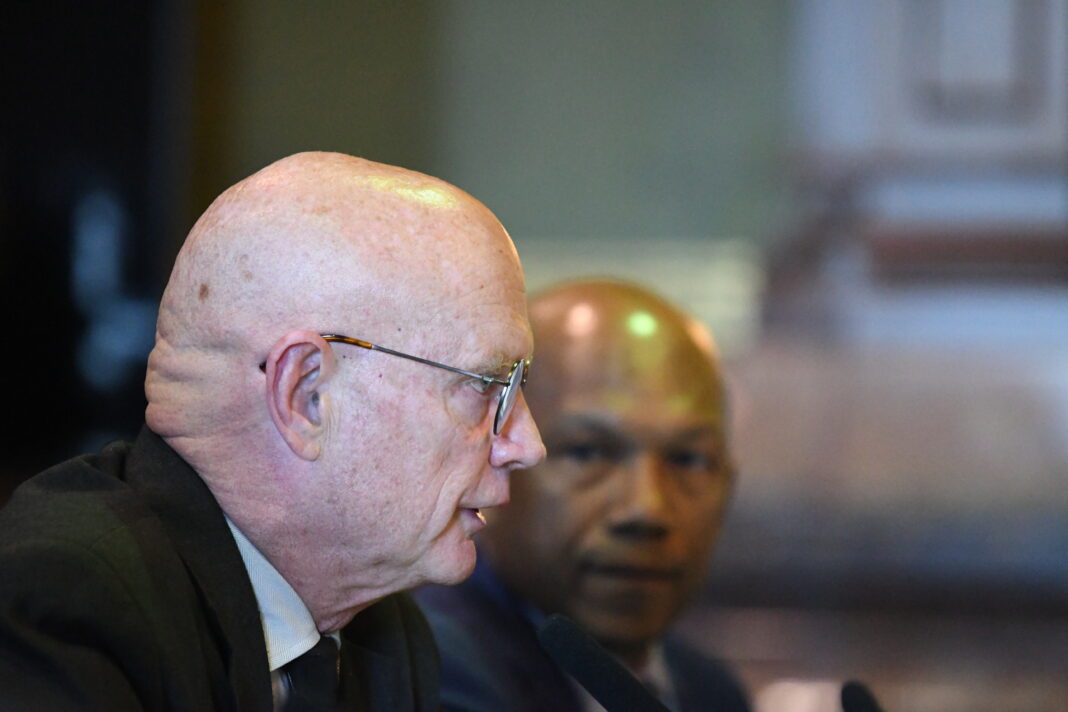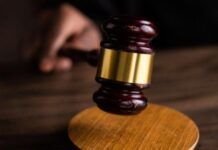The Iowa House Judiciary Committee advanced a bill strengthening religious liberty protections on Thursday. House Study Bill 614 is known as a Religious Freedom and Restoration Act law.
It aims to prohibit a government entity from substantially burdening a person’s free exercise of religion. Courts would have to apply the compelling government interest test so that the government cannot substantially burden a person’s free exercise of religion unless the government demonstrates a compelling government interest in doing so and uses the least restrictive means in doing so.
Democrat State Rep. Lindsay James said RFRA is not about religious freedom, but is instead about politics. James was an ordained Presbyterian pastor and served as a chaplain prior to working in political life. She said she’s grateful for religious freedom protections provided in the U.S. Constitution, but doesn’t believe the proposed RFRA resembles the federal RFRA that was introduced by Chuck Schumer and Ted Kennedy and signed into law by President Bill Clinton.
“Instead what this does is it weaponizes religious beliefs to justify discrimination,” James said.
James mentioned hypothetical situations where she fears RFRA would protect discrimination such as a landlord evicting a single mother or a pharmacist who refuses to fill a prescription for contraception.
“Outside of legalizing discrimination, this bill has the potential to create chaos for our law enforcement,” she said. “It has the potential to have costly litigation in our court systems. And this one makes me most uncomfortable, it gives the judicial system vast authority to define what is a ‘real religion’ or a ‘genuine religious belief.’ It also makes Iowa an unwelcoming state.”
Republican State Rep. Steve Holt said “everything” James said was “not accurate.”
This version of RFRA is the same as the federal RFRA, he asserted. Iowans need RFRA because of a 1990 Supreme Court ruling that substantially weakened protections previously given to the free exercise of religion.
“People of faith and places of worship are facing more and more government intrusion and violations of their right to worship consistent with their beliefs,” Holt said. “RFRA protects the religious beliefs of every American. It’s a balancing test — not a sword or a shield. Our great nation remains one of the last and greatest fortresses for the defense of religious liberty in the world today.”
He added the scenarios that worry James simply haven’t happened in the 30 years RFRA has been federal law or in the 25 states that have adopted the protections.
“I love all these hypotheticals that have never happened anywhere,” Holt said regarding the situations James fears may happen. “The parades of horribles that Representative James just rattled off are not happening.”
There are specific examples available, however, to see how RFRA has been applied. Holt talked about a Native American child who was allowed to wear his hair long as required by his religion after school officials told him to cut it. He mentioned a Philadelphia ministry that was able to continue serving the homeless in a city park after city officials attempted to stop them after decades. Holt mentioned other cases as well, and none were the scenarios James talked about.
“It is a balancing test,” Holt said. “Iowans should be free to live and work according to their faith without fear of being unjustly punished by the government. The right to worship and exercise fundamental religious beliefs is in our American DNA and should be protected.”
The bill passed the House Judiciary Committee 14-6 on a party-line vote.

















